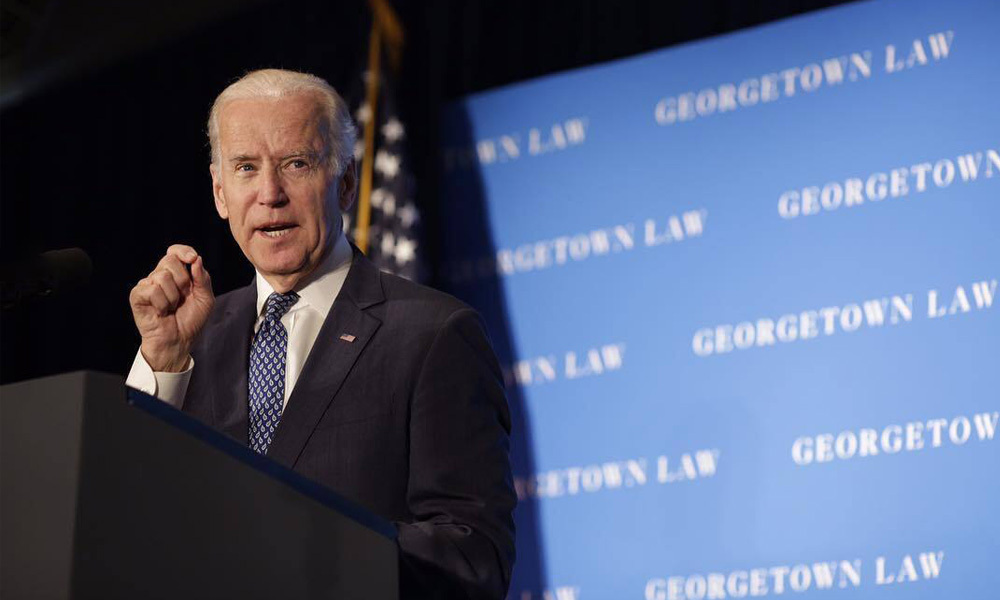Speaker Kevin McCarthy has directed the U.S. House to launch an impeachment inquiry into President Joe Biden. With the move, the House will explore whether to impeach a president for the third time in four years.
Such investigations used to be rare. Just three presidents – Andrew Johnson, Bill Clinton and Donald Trump – have ultimately been impeached by Congress, and Richard Nixon resigned before he could be impeached. To explain how the Biden inquiry compares to previous impeachment investigations, we spoke with experts at the USC Sol Price School of Public Policy and other schools across the university.

“Impeachment inquiries are a mix of law and raw politics. The worst ones are raw politics mostly, and driven by partisanship and ideology,” said Christian Grose, professor of Political Science and International Relations and Public Policy at the USC Price School. His research has analyzed the political and legal dynamics of impeachment.
McCarthy’s thin House majority likely pushed him to open the Biden inquiry, USC experts said. The California Republican has faced pressure from more conservative members of his party to launch an impeachment proceeding – and they are crucial to McCarthy’s ability to pass legislation, avoid a government shutdown and keep the speakership.
Previous House speakers faced pressure from their parties
Former House speakers Newt Gingrich, a Republican, and Nancy Pelosi, a Democrat, found themselves in similar situations, said Jeffery A. Jenkins, Provost Professor of Public Policy, Political Science, and Law at the USC Price School. Gingrich was initially reluctant to go along with impeachment proceedings against Clinton, but ultimately gave in to the right flank of his caucus. Pelosi felt similar pressure from more liberal lawmakers before Trump’s first impeachment.

“She felt pressure from her left flank, but delayed proceeding on impeachment. Why? Public opinion was divided, and she was worried about Democratic moderates — especially those Democrats in seats traditionally held by Republicans — who might feel an electoral backlash,” said Jenkins, a political historian.
Among other things, Republicans want to investigate whether Biden benefitted from his family’s foreign business dealings, particularly those involving the president’s son, Hunter. The White House has said the president wasn’t a party to Hunter Biden’s business affairs and did nothing wrong. On Thursday, the Justice Department indicted Hunter Biden on gun charges.
Bob Shrum, director of USC Dornsife Center for the Political Future, was a Democratic strategist who helped Clinton make ads responding to his impeachment. He said a lack of evidence makes the Biden inquiry “unlike any former impeachment of a president in modern history.”
“Impeachment inquiries are a mix of law and raw politics.”
Christian Grose, USC Price School Professor
For example, Republicans made a case against Clinton, who had an affair with White House intern Monica Lewinsky, using phone recordings of Lewinsky discussing the affair and a dress that contained DNA linked to Clinton.

“Whether you thought what Clinton did was an impeachable offense or not, there was evidence there,” Shrum said, calling the GOP’s inquiry into Biden “nakedly political.”
Evidence has not been required for some political rivals to call for impeachment. Democratic Rep. Dennis Kucinich called for the impeachment of former President George W. Bush and former Vice President Dick Cheney, and other Democrats called for Trump’s ouster as soon as he assumed office, noted Christina Bellantoni, Professor of Professional Practice at the Annenberg School for Communication and Journalism.

Bellantoni, who studies how the public interprets media coverage, said the rash of recent impeachments will likely turn off many Americans who are already sick of Congress. People may not only dismiss the increasingly common impeachment inquiries, but important political and policy issues, as well.
“When people throw up their hands and tune it out, that’s actually really dangerous for a healthy democracy,” said Bellantoni, director of the Annenberg Media Center. “People should be informed about what’s happening.”





